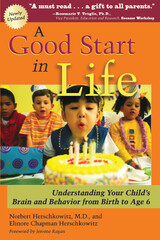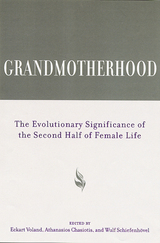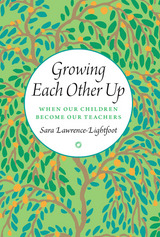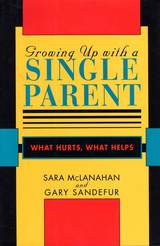5 start with G start with G

Thomas Davey conducted interviews with children both sides of the Wall, participated in their daily lives, collected their drawings, talked with their teachers and families and grew aware of just how attentive children can be to moral and political subtleties of national life. The result is a revealing and dramatic portrait of a young generation coming to terms with complex national and historical circumstances of the two cites of East and West Berlin.

This new paperback edition, updated with the latest information and new material, offers parents and educators a rich and invaluable resource on how children learn to live in family and society from birth to age six. Norbert Herschkowitz, MD, and his wife Elinore Chapman Herschkowitz draw on their lifetime of experience in studying infants and children to explain how brain development shapes a child’s personality and behavior. Organizing their narrative by age, the authors examine a wide range of social development issues, from appropriate rule-setting to the development of key character elements in a child such as moral sensibility, temperament, language development, playing, aggression, impulse control, and empathy.
Some of the most popular features of the hardcover edition are retained here, including the question-and-answer section that concludes each chapter with real questions posed by parents to Dr. Herschkowitz, as well as brain maps and charts that display milestones in the development of various skills. Additional new material addresses concerns about prematurely born babies and the issue of resilience in children.
In today’s world, children grow up in an incredibly complex and highly sensory environment. A Good Start in Life offers a clear, concise, and richly detailed guide infused with warmth and encouragement that enables parents and educators to constructively stimulate and shape their children’s cognitive and social development.
“A must read . . . a gift to all parents.”—Rosemarie T. Truglio, vice-president, Education and Research, Sesame Workshop
“Do the first three years of life represent a critical period for all aspects of development? Are we the product of our genes or of our environment? Does early exposure to Mozart make for smarter babies? The answers to these and other pressing questions are skillfully and elegantly answered in this wonderful book, which I enthusiastically recommend.”
—Charles A. Nelson, Distinguished McKnight University Professor of Child Psychology, Neuroscience, and Pediatrics, University of Minnesota
“This delightfully written book . . . is not merely a how-to book, but a book about understanding how a child truly grows.”
—Guy McKhann, MD, The Johns Hopkins School of Medicine

By the year 2030, the average life expectancy of women in industrialized countries could reach ninety—exceeding that of men by about ten years. At the present time, postmenopausal women represent more than fifteen percent of the world’s population and this figure is likely to grow.
From an evolutionary perspective, these demographic numbers pose some intriguing questions. Darwinian theory holds that a successful life is measured in terms of reproduction. How is it, then, that a woman’s lifespan can greatly exceed her childbearing and childrearing years? Is this phenomenon simply a byproduct of improved standards of living, or do older women—grandmothers in particular—play a measurable role in increasing their family members’ biological success?
Until now, these questions have not been examined in a thorough and comprehensive manner. Bringing togethertheoretical and empirical work byinternationally recognized scholars in anthropology, psychology, ethnography, and the social sciences, Grandmotherhood explores the evolutionary purpose and possibilities of female post-generative life. Students and scholars of human evolution, anthropology, and even gerontology will look to this volume as a major contribution to the current literature in evolutionary studies.

With Growing Each Other Up, Macarthur Prize–winning sociologist and educator Sara Lawrence-Lightfoot offers an intimately detailed, emotionally powerful account of that experience. Building her book on a series of in-depth interviews with parents around the country, she offers a counterpoint to the usual parental development literature that mostly concerns the adjustment of parents to their babies’ rhythms and the ways parents weather the storms of their teenage progeny. The focus here is on the lessons emerging adult children, ages 15 to 35, teach their parents. How are our perspectives as parents shaped by our children? What lessons do we take from them and incorporate into our worldviews? Just how much do we learn—often despite our own emotionally fraught resistance—from what they have seen of life that we, perhaps, never experienced? From these parent portraits emerges the shape of an education composed by young adult children—an education built on witness, growing, intimacy, and acceptance.
Growing Each Other Up is rich in the voices of actual parents telling their own stories of raising children and their children raising them; watching that fundamental connection shift over time. Parents and children of all ages will recognize themselves in these evocative and moving accounts and look at their own growing up in a revelatory new light.

Nonwhite and white, rich and poor, born to an unwed mother or weathering divorce, over half of all children in the current generation will live in a single-parent family--and these children simply will not fare as well as their peers who live with both parents. This is the clear and urgent message of this powerful book. Based on four national surveys and drawing on more than a decade of research, Growing Up with a Single Parent sharply demonstrates the connection between family structure and a child's prospects for success.
What are the chances that the child of a single parent will graduate from high school, go on to college, find and keep a job? Will she become a teenage mother? Will he be out of school and out of work? These are the questions the authors pursue across the spectrum of race, gender, and class. Children whose parents live apart, the authors find, are twice as likely to drop out of high school as those in two-parent families, one and a half times as likely to be idle in young adulthood, twice as likely to become single parents themselves. This study shows how divorce--particularly an attendant drop in income, parental involvement, and access to community resources--diminishes children's chances for well-being.
The authors provide answers to other practical questions that many single parents may ask: Does the gender of the child or the custodial parent affect these outcomes? Does having a stepparent, a grandmother, or a nonmarital partner in the household help or hurt? Do children who stay in the same community after divorce fare better? Their data reveal that some of the advantages often associated with being white are really a function of family structure, and that some of the advantages associated with having educated parents evaporate when those parents separate.
In a concluding chapter, McLanahan and Sandefur offer clear recommendations for rethinking our current policies. Single parents are here to stay, and their worsening situation is tearing at the fabric of our society. It is imperative, the authors show, that we shift more of the costs of raising children from mothers to fathers and from parents to society at large. Likewise, we must develop universal assistance programs that benefit low-income two-parent families as well as single mothers. Startling in its findings and trenchant in its analysis, Growing Up with a Single Parent will serve to inform both the personal decisions and governmental policies that affect our children's--and our nation's--future.
READERS
Browse our collection.
PUBLISHERS
See BiblioVault's publisher services.
STUDENT SERVICES
Files for college accessibility offices.
UChicago Accessibility Resources
home | accessibility | search | about | contact us
BiblioVault ® 2001 - 2025
The University of Chicago Press









